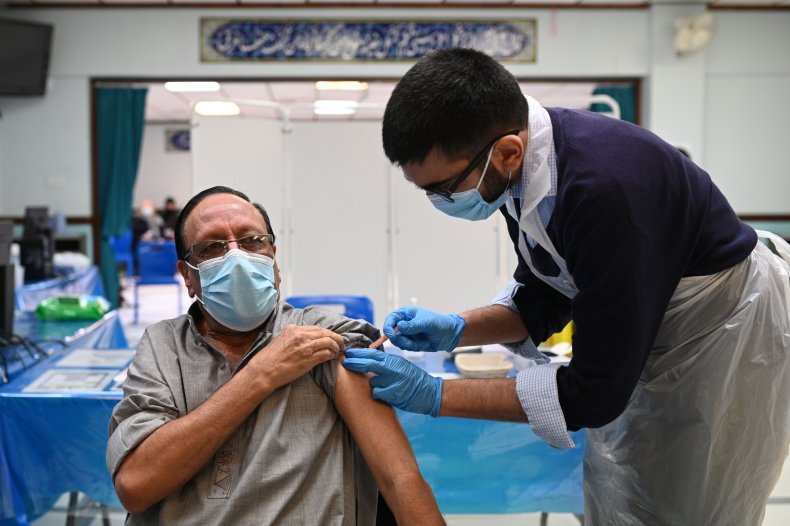[ad_1]
The minister responsible for the U.K.’s COVID-19 vaccine rollout has said it is very likely that annual jabs will be required to control the SARS-CoV-2 virus.
Speaking to the BBC’s Andrew Marr Show, Nadhim Zahawi also said providing a COVID-19 booster shot in the autumn was a possibility too.
“I was speaking to [deputy chief medical officer] Jonathan Van-Tam this morning,” Zahawi told Marr. “We see very much probably an annual or booster in the autumn and then an annual [shot,] in the way we do with flu vaccinations where you look at what variant of virus is spreading around the world, rapidly produce a variant of vaccine and then begin to vaccinate and protect the nation.”
To date, more than 12 million people in the U.K. have received at least one vaccine dose, placing the country only behind Israel among the world’s nations when it comes to shots administered per 100 people, according to Our World in Data. The United States is in third place when ranked by this metric.
Zahawi told Sky News he was “confident” the U.K. government would meet its target of offering the 15 million most vulnerable people shots by February 15.
Countries with sufficient supplies are racing to vaccinate their populations as new variants of the SARS-CoV-2 emerge. Among the most concerning are variants identified in the U.K., South Africa and Brazil, all of which appear to be more transmissible than the original.
The U.K. variant—known as B.1.1.7.—has now been detected in several nations around the world, and is spreading rapidly in the United States, according to a study posted to the pre-print server medRxiv on Sunday.
The authors of the study, which has yet to be peer-reviewed, analyzed data from around 500,000 positive COVID-19 samples and sequenced hundreds of genomes in order to gain a better understanding of how the variant is spreading in the United States.
They found that while B.1.1.7. is currently at a “relatively low frequency” in the United States, the proportion of cases the variant is linked to is doubling every week and a half, estimating that it has an increased transmission rate of 35-45 percent.
These findings are consistent with those from other countries, and given the current trajectory of the variant’s spread in the U.S., B.1.1.7. is “almost certainly destined to become the dominant SARS-CoV-2 lineage by March, 2021 across many U.S. states,” the authors wrote.
This conclusion supports an analysis previously conducted by the U.S. Centers for Disease Control and Prevention (CDC).
“Our study shows that the U.S. is on a similar trajectory as other countries where B.1.1.7 rapidly became the dominant SARS-CoV-2 variant, requiring immediate and decisive action to minimize COVID-19 morbidity and mortality,” the authors wrote.
Last week, the U.S. Food and Drug Administration (FDA) said it would use current regulatory processes for updating annual flu vaccines to facilitate the rollout of COVID-19 shots that have been modified to adapt to new strains, should this be required.
Acting Commissioner of the FDA Janet Woodcock said in a statement: “Our agency has had experience with evolving infectious diseases. Influenza vaccines and diagnostics are often modified each year to address the predicted predominant strains circulating globally. The agency has created and used regulatory processes that facilitate these updates.”
“We will utilize our experience with influenza to help inform a path forward if SARS-CoV-2 variants emerge against which currently authorized vaccines are not sufficiently effective. Similarly, the FDA also has vast experience with human immunodeficiency virus developing resistance to antiviral drugs, and will follow regulatory pathways to quickly enable new antiviral drug development for resistant virus.”
Newsweek, in partnership with NewsGuard, is dedicated to providing accurate and verifiable vaccine and health information. With NewsGuard’s HealthGuard browser extension, users can verify if a website is a trustworthy source of health information. Visit the Newsweek VaxFacts website to learn more and to download the HealthGuard browser extension.

OLI SCARFF/AFP via Getty Images
[ad_2]
Source link